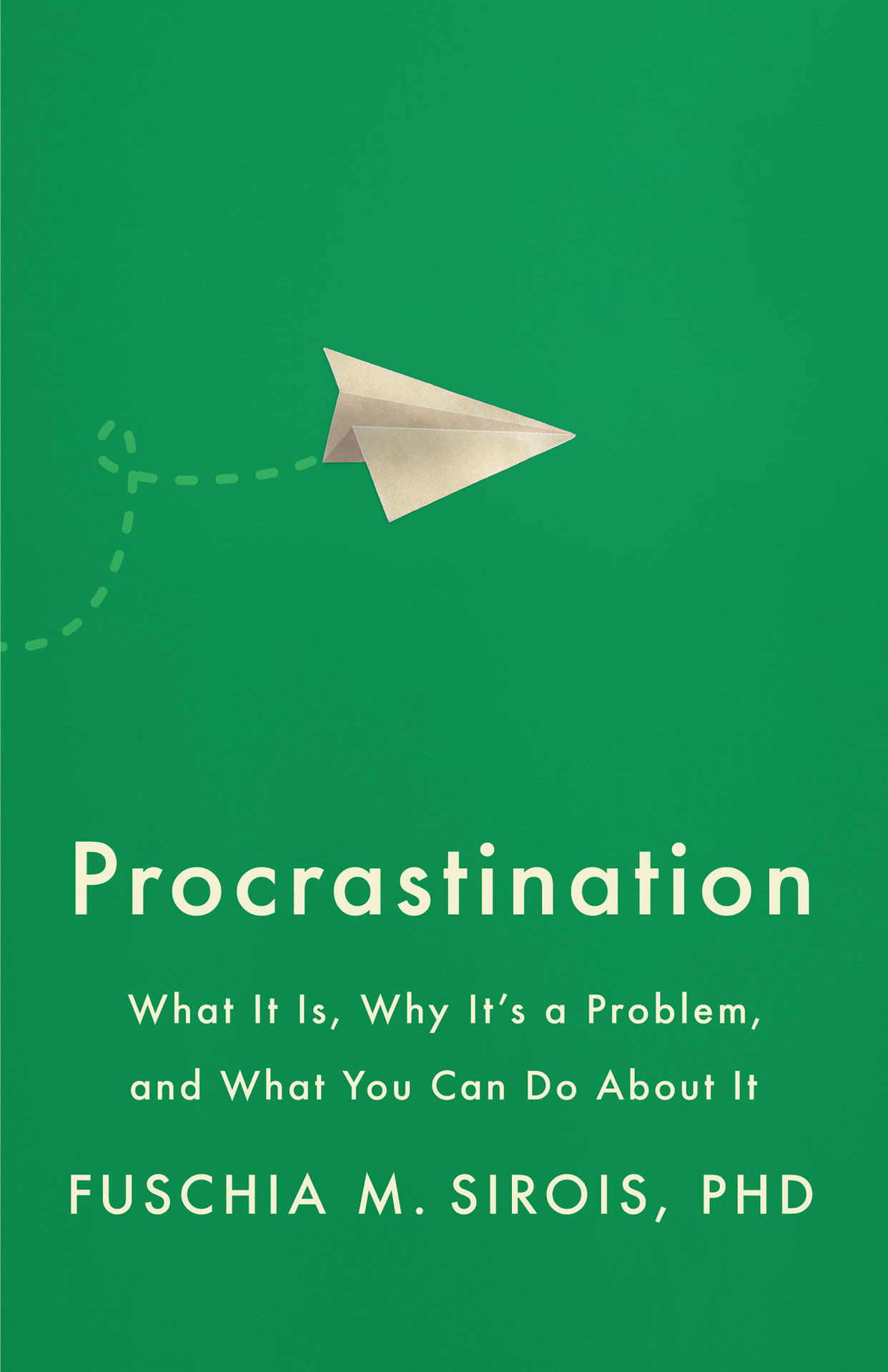Book Review: Procrastination
In which I think I find the root of my Great Stuckedness, plus a Bonus Procrastination Banishing Spell
In one of those bright social media moments where I find a truly life-changing post - as opposed to the hours spent doom-scrolling and getting little dopamine hits from funny animal videos - I recently found this post on reddit. As I scrolled through more and more comments that sounded just like me I found one that mentioned a book that had been quite revelatory: Procrastination: What It Is, Why It's a Problem, and What You Can Do About It (APA LifeTools Series) by Fuschia M. Sirois PhD. (Yes the author’s name is quite something, which is unironically countered by a very plain book cover).

I bought it immediately. After all, what can be more important to Strong99 and thriving later in life than getting past being stuck? It arrived a couple of days later and I dropped almost everything. I spent a couple more days reading it and then proceeded to boil it down into a 1 page script that I am now practicing. Here’s what I found.
The book is structured to show the reader first the damage that procrastination can do to someone’s life (and the life of their loved ones), second to describe why people procrastinate, and third to provide actionable steps to overcome the problem. The author is a research scientist (in Psychology) by writes in a style that is approachable and does a good job of keeping it relatively jargon- and statistics-free. Where it is necessary to dive into that the descriptions are easy to understand. I think what is most important to the author (and me) is that what is presented is backed up by real-world experimental results: this is a long way from just another shelf-help book quoting “studies have shown”.
And what did I learn?
On her procrastination scale I have chronic procrastination.
At its core, procrastination is a problem of emotional regulation.
All that time and money spent on books and training about better time management, better task management, better focus, and better planning? Meaningless if, like me, you have a problem with procrastination. All that time doing … nothing? It’s embarrassing and difficult to describe how much time I’ve wasted on this.
Emotional regulation or mood regulation in this context means that when we feel overwhelm from clutter, overwhelm from all the tasks, fear of not being perfect, fear of judgements, and so on, we run to the short-term safety of distraction. Distraction could be many things here: food, other unimportant tasks, TV, web-surfing, etc. Distraction is the numbing out that Brené Brown talks about.
The book presents multiple strategies to move past this but at their core is a practice of shifting our internal script from “vaguely bad feeling, I’ll give up and do something fun” to “identifying the emotion, sitting with it, remembering that what we don’t finish today impacts our future selves, and using self-compassion”. I’ve already started this practice and there is definitely some sadness and fear that I’m running away from.
If you think you have a procrastination problem it’s worth reading this book and doing the exercises she provides. I wrote about 6 pages in my journal working through the questions and believe that it has set me on the right track to get past this. It will be a long journey but I can flip my script and stop running away from emotions.
For reference, here is the script I have on my desk to help me when I am procrastinating. The Self-compassion break is straight from Kristen Neff’s great site. Just for grins I made it a spell, but I know it’s going to be harder than just waving a magic wand.
depulso procrastinatio 🪄
Practice Self-compassion - change the script
Is this just short-term mood regulation?
Pause and allow the emotion.
Will delaying just push this off to Future Me? What would Future Me say?
Self-compassion Break.
1. This is a moment of suffering. This is stress.
2. Suffering is a part of life. Other people feel this way, too.
3. Hands over heart. May I be kind to myself. May I learn to accept myself as I am. May I forgive myself. May I be strong. May I be patient.
Treat myself like a good friend. That’s OK, you’re trying to do something difficult and it’ll have ups and downs. Just pick it up again and keep going. You’ll feel great once you get this piece done. This is a practice. You do good work with a good heart and you are brave to put it out into the world. Take care not to have a big ego about it. Water off a duck’s back, Brad. Water off a duck’s back.
Remove Distractions
Per task - Tabs closed, apps hidden, notifications disabled
Daily - Desk clean of paperwork and cables, packs and clothes put away, no files on computer desktop, InBox zero
Weekly - Visible shelves organized, floors clean
Well-defined Tasks
Usually from daily plan in todoist
Specific activity
Specific time allotted
Not too big
Why am I doing this? What makes it something I get to do? Relate task to meaning, larger goal.





